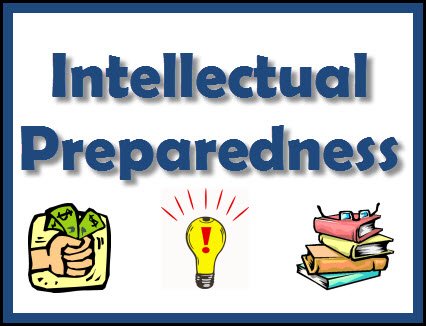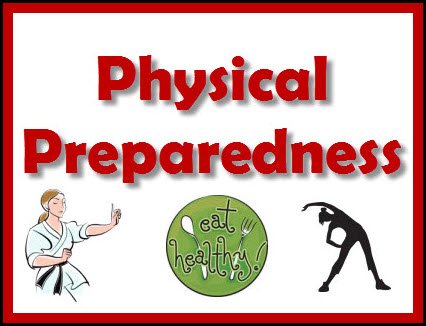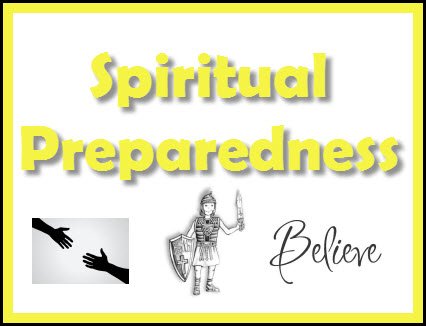November 27, 2024 | Getting Prepared | No Comments

Have you thought about how ready you and your family would be in the face an emergency or catastrophe? Do you think you could face disasters like these and survive?
Earthquakes, Floods, Landslides, Wildfires, House fires, Tsunamis, Nuclear Bombs, Pandemics & Epidemics, Terrorist Attacks, Volcanoes, Severe Blizzards, Ice Storms, Hurricanes, Extreme Heat, Hazmat Incidents, Major Car Accidents, EMP / Power Grid Attack, or a National or Global financial Crisis.
While we can’t foresee such events, at least not with certain accuracy, we can prepare for them. We don’t need to be doomsayers or expect a crisis to come at any moment. But preparation is a big key to having a focus and a plan of survival and recovery.
Our aim, at DIY Preparedness, is to take a Faith-based approach in becoming more prepared. This means that we believe that it’s important to do all we can to become as self-reliant as we can; and then put our trust and belief in God that He has His hand in all things. Ultimately it isn’t about what happens but how we handle it and how we treat people.
Here we have four main categories of preparation that each need careful attention to become more prepared in.
1. Temporal Preparedness

Basically, this is all things gathered and prepared that affect us temporally in this life. Things like:
- Water storage and purification
- Food storage and prep
- Medical and first aid and medication needs
- Clothing, shelter and fuel
- Tools, hunting gear, weapons
These are things that seem most immediate to our survival, and often what we focus on the most when we begin to prepare.
2. Intellectual Preparation

It’s not enough to have food, water and shelter. We need to have skills and know-how. Part of preparing is increasing our ability and understanding in a multitude of areas. If there comes a time when money holds little or no value, then having skills and craftsmanship to barter with will be highly advantageous. Also, one must be up to date on current issues going on in the world to see how things may be progressing. Like world financial fluctuations, terrorist activity, the spread of disease and things like this. Areas of Intellectually preparing include:
- Reading, studying and increasing in education
- Learning a variety of skills (especially ones pertaining to survival)
- Learning to budget and use money wisely
- Getting out of debt and saving money
- Studying current issues and keeping aware of what is going on in the world, nationally and locally
- Taking part in community efforts (school board, legislatures, city hall meetings, youth organizations, etc.)
3. Physical Preparation

The weak have a harder time surviving than those who are healthy. Part of preparing physically would be:
- Establishing a healthy eating lifestyle – consuming vegetables, fruits, & whole grains
- Learning to be satisfied with eating smaller portions
- Exercising and building up endurance levels
- Developing skills to physically protect yourself and practicing them
- Drinking lots of water
- Lose weight, get off medications if you can
All the food and water storage in the world won’t help someone who’s so physically unfit that they cannot take care of themselves and those around them in a crisis. The time to improve and tackle health issues is now. The time to improve your good health to premium health is also now.
4. Spiritual Preparation

This is listed last yet it really is most important, especially for those of us who are faith-based in our thinking. If we get so caught up in the negativity and fear of pending doom, our hearts can fail us. I believe there is a purpose and reason for everything that happens. And If I do my best, God will make all the hard things I go through end up as a blessing in my life in the end.
Being spiritually prepared means not forgetting the big picture. To do that, we must keep our core values grounded and continue to build (or even begin) a closer relationship with our Creator. Overall, it takes faith to endure trials.
- Practice positive and hopeful thinking now
- Pray daily and sincerely – not just when times are hard
- Begin or continue a daily gratitude journal – to help see the bigger picture of life
- Find opportunities to serve
- Read the scriptures and uplifting books
- Work to forgive, heal or mend broken relationships
- Allow yourself to move on from pain and heartache and to feel joy
- Become or continue to be a believer in daily miracles – then see them
Practice thoughts like: “how can I best help in this situation” instead of “how can I guard my resources”. Not that guarding your resources is wrong, not at all. But focusing on that too much may give you a mind-set opposite of how God may want you to help others. After all, everything on this earth belongs to God, doesn’t it?
Personally, I am not an expert in all things about emergency preparedness. I know there are many folks out there who know way more than I do. I love learning from them!
I can tell you that I have felt a desire embedded in me since I was young that I need to prepare. It’s never been a fearful feeling, but more of a feeling of “don’t keep waiting”.
And now up to this day, what I feel is a sense of urgency to get my home in order, to get my life prepared in those four areas I’ve listed above. I don’t feel fearful, but I do feel an urgency.
Wonderful leaders in my church have also admonished us for year to get one year of food storage if we can, and to learn to be self-reliant financially and temporally. I have always felt that was wise council. So now I hope to motivate not only myself but others to get our lives in order. God needs us to be ready so we can help our families and help others.
disaster, Intellectual Preparedness, Physical Preparedness, preparedness, ready, Spiritual Preparedness, Temporal Preparedness

